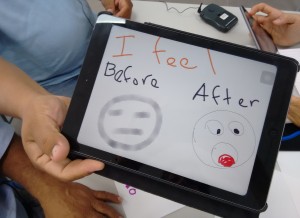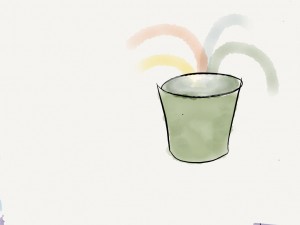Last week I blogged a little piece on the power of inviting a human being into a learning or doing experience. The human side of it. Today I finally read the post from Ryan Tracey that a number of folks have mentioned, Collateral damage | E-Learning Provocateur.
Ryan, after acknowledging the lack of evidence that supports the theory or learning styles (yay!), brings some nuance into the conversation and tackles the contextual issues around learner preferences.
If someone is in a classroom or a job-mandated training session, they will take what you give them. They may not be happy, but the in-room environment creates more pressure to conform.
In independent, self-driven learning, we hew more to our own personal preferences. Like Ryan, I cringe when I have to learn through videos, not just because so many are bad, but I’m a fast reader and can pinpoint what I want more efficiently. I certainly CAN learn with videos, I just prefer NOT to.
Creating a space for choice seems a pretty humane thing to do. I am more likely to follow through, to say YES, if you give me the respect as an adult learner and, where practical, some choice. I’ve observed this increases engagement over time (mine and others’). I wonder if there is any data to support this?
I think back to the JIBC/UdG Guadalajara group last month and even the conversations around Adroid vs. IOS, even without their religious zeal, reflect that driving impulse to have some level of choice, both as instructors/teachers/trainers and as learners.
P.S. I enjoyed the images in Ryan’s post as well!
P.S.S. The network and Ryan have circled back and now we know the image is the work of Allie Brosh at Hyperbole and a Half: http://hyperboleandahalf.blogspot.com – Allie, your work rocks!


